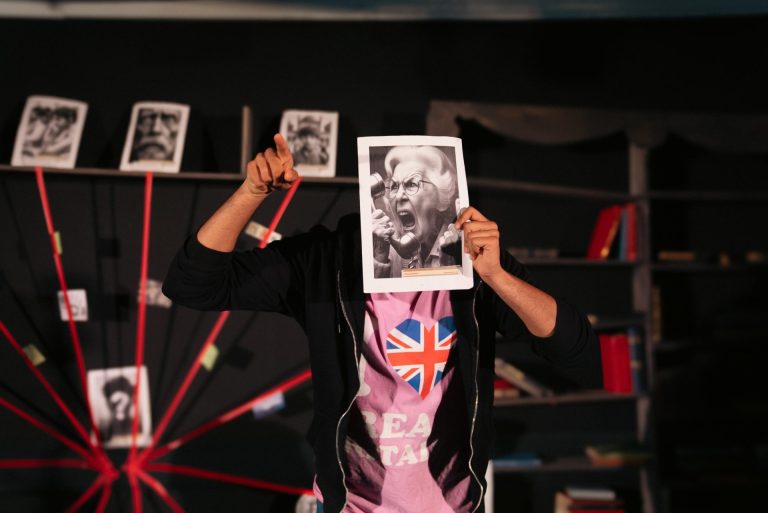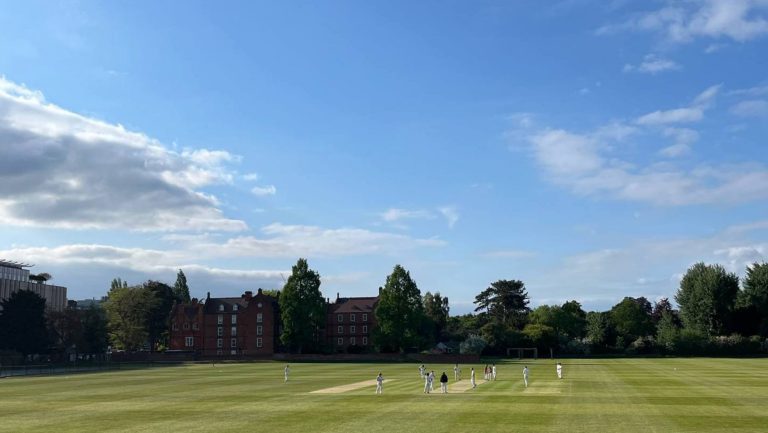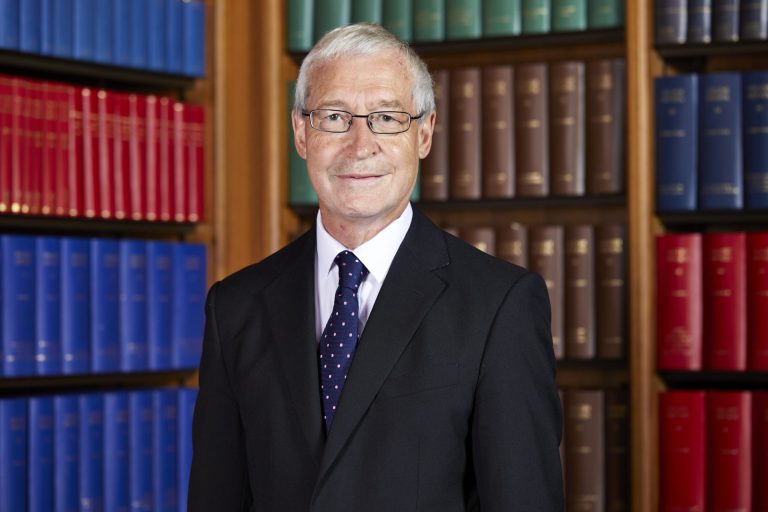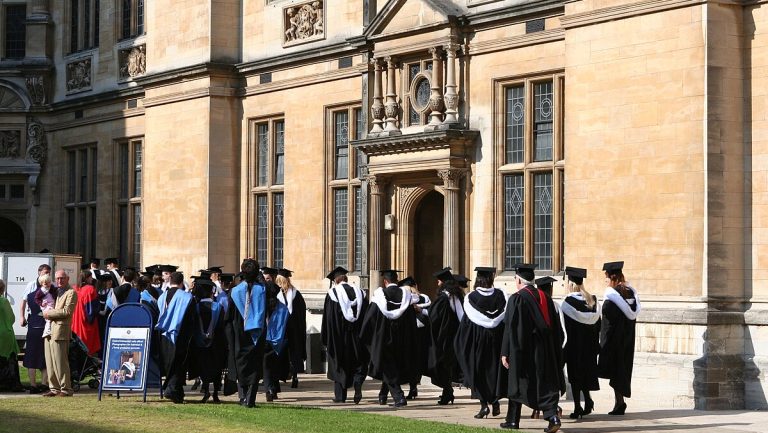Andrew Burrows, Lord Burrows is a Justice of the UK Supreme Court and one of the country’s leading legal scholars specialising in contract and unjust enrichment law. Prior to being appointed to the Supreme Court, he was Professor of the Law of England at Oxford University and a Fellow of All Souls. As a Law Commissioner, he was primarily responsible for the report that led to the Contracts (Rights of Third Parties) Act 1999. He has authored major works, including Remedies for Torts, Breach of Contract and Equitable Wrongs, The Law of Restitution, A Restatement of the English Law of Unjust Enrichment, A Restatement of the English Law of Contract, and A Casebook on Contract. He was appointed honorary QC in 2003, and in 2020 became the first Supreme Court Justice appointed directly from academia. Cherwell spoke to Andrew Burrows about the Supreme Court, mentorship, and the future of legal judgment.
Cherwell: What first drew you to studying law? Was it something you always saw yourself pursuing, or did particular moments at home or at Oxford shape that interest?
Burrows: We have no lawyers in my family, but I think it was my father who suggested I might like to study law, probably because I was so argumentative at the dinner table! When I first arrived at Oxford, I realised straightaway I’d chosen the right subject, because I absolutely loved it, particularly in those first few weeks when one of the subjects we were studying was criminal law and we had to read the case reports. That was really exciting.
I had two wonderful law tutors at Brasenose. John Davies, who was a very calm and collected person. The other person who became my great mentor was Peter Birks, who was totally brilliant, charismatic, and very passionate about the law. I consider myself very fortunate to have had two such superb tutors, both very different and Peter Birks guided me and inspired me to become an academic lawyer.
Cherwell: Coming from such a strong background of academia, do the two sides of your work complement each other, or do you see yourself differently as a professor compared to a judge?
Burrows: My academic writings and my academic research do shape my judgments, at least those involving the common law. I’m always concerned about how the particular decision fits with the big picture of the law.
Of course, on the Supreme Court, we all have to become generalists. We have to deal with every aspect of the law. If it is an area of law that I am less familiar with, I tend to go to the textbooks first of all to see where the issue in the case fits. I do that because the textbooks give you a neutral, objective analysis, whereas, when you’re dealing with counsel submissions, you’ve got polarised arguments. Furthermore as an academic, I’ve always been very conscious of how important it is to make what you’re doing clear and accessible, both in my writings and my teaching and I try to bring that clarity across into my judgments.
Cherwell: Have there been cases, at the Supreme Court or elsewhere, that made you reconsider how the law works in practice?
Burrows: I think one has to be very careful if you’ve been involved heavily in academic writing on a particular area, not to come into a case with a preconceived fixed notion as to what the right answer is, because you must always be open-minded and allow yourself to be persuaded that what you initially thought is not the correct answer. I was involved in a case called Khan v Meadows quite early on, which is about the tort of negligence and the scope of the duty of care. I had to go against some of my writings that I had previously published as to how best to understand that particular area.
When you’re focusing on a particular case, it really sharpens your understanding of the law. There have been several situations where, coming into a case, I thought I might have known quite a lot about the area, but when I have been focusing on having to make a decision on a specific point, a lot of things that I perhaps didn’t realise about why the law is the way it is, all become clear and very important.
Cherwell: Can the weight of those decisions still feel daunting, given their impact both socially and individually?
Burrows: As an academic, I used to agonise quite a lot about whether what I was writing about the law was correct. But I have certainly had more sleepless nights since I’ve been on the court than I previously did! Once you’ve made your decision and the judgment has been handed down, that is it, so the real agonising goes on before the decision is made and while you are writing your judgment. One great feature of being on the court, which relieves some of the pressure, is that you’ve got wonderful colleagues. You aren’t on your own.
The most daunting aspect of the job for me is immediately after the hearing. Having heard all the arguments in open court, we then retire and straightaway go to a private room. There each of us on the panel, and we normally sit in panels of five, gives a mini judgment as to what we think the decision should be and why. Each person goes in order, and, by convention, this is in the order of the junior judge going first up to the most senior judge who goes last. That was particularly daunting when I first started, because I was the junior, speaking about the decision and my reasons for it, without really knowing what the others were thinking at that point.
Cherwell: On the topic of how people learn and shape their mindsets, how do you see the profession evolving? There is already a lot of conversation about how AI is affecting law in practice, but do you have any predictions on how AI could change the legal field?
Burrows: My understanding is that AI is already being used extensively in law firms with what you might call more mundane tasks of checking legal documents and the like. There have been a couple of high-profile cases in this country on the incorrect use of AI by barristers, and I took part in an academic study on what it was thought AI could potentially do in court. My own take on this is that it could well be that the more mundane tasks that we have to do, for example, summarising the facts, may be done over the course of time by AI, but I am doubtful whether AI can ever replace the element of judgment that we rely on judges to exercise.
But at the moment it is very risky to use AI for legal research. For example, at a recent Christmas gathering, I was being shown ChatGPT by one of my children and I asked ChatGPT to tell me about a case. It was quite good on the facts, but when I asked what was the principle of the case, it was 100% wrong. What AI is doing is using a database and then basing it on probabilities. As the databases become more sophisticated and wide-ranging, the accuracy will increase, but at this moment in time, you have to be really careful.
Cherwell: I think there’s always that human element of not wanting to let yourself be taken over by a machine in a dystopian manner. People want to feel that a judgment about them is being made by a human.
Burrows: That’s an interesting point, even if you were able to replace judgment, would you want to trust a machine? Take driverless cars. Even if we know that a driverless car is less likely to be involved in accidents, is there still something holding us back? Well, we may get over that, but when you come to judgment, I think there’s a particular difficulty about trusting the exercise of judgment to a machine. It may just be that, as a society, we can’t accept that.
Cherwell: Many of our readers are students who are considering legal careers. Are there any common misconceptions you see from young people, or advice you have for students?
Burrows: I would say, do not just follow the money. Try to find an area of law that you’re passionately interested in, and see what jobs there are in that area. The law offers a range of different types of jobs. If you find academic law interesting, seriously consider postgraduate study. And if you find you’re successful at postgraduate study, seriously consider becoming an academic, because it’s a fantastically varied and interesting job, and above all else, you control your own type of work.
Never be afraid to take people back to the basic principles. If you’re presenting arguments, going back to the basics is always helpful. I remember my great mentor Peter Birks saying to me: “If you can’t explain this area of the law to an intelligent teenager, you don’t really understand it yourself.” I think that’s a great idea to hang on to, that trying to simplify things down is actually very important in understanding.
Cherwell: Looking back, what moments stand out as your proudest achievements?
Burrows: Two moments, I suppose. Firstly, in the early 1990s, I was awarded (jointly) the Society of Legal Scholars prize for my book, The Law of Restitution. The second was when I got the phone call to say that I had been appointed to the Supreme Court.
Cherwell: Finally, are there any moments from your career that made you laugh?
Burrows: I was doing the London legal walk, and towards the end, I was approached by a person with a microphone and a camera who was randomly asking people if they could name the twelve Supreme Court justices in this country. He said the highest number he’d had so far was that somebody could name five. I said to him, “I’m very confident I can name all 12”, and I said “I’ll start with myself, Lord Burrows”. He nearly fell over backwards because he hadn’t realised who I was!











